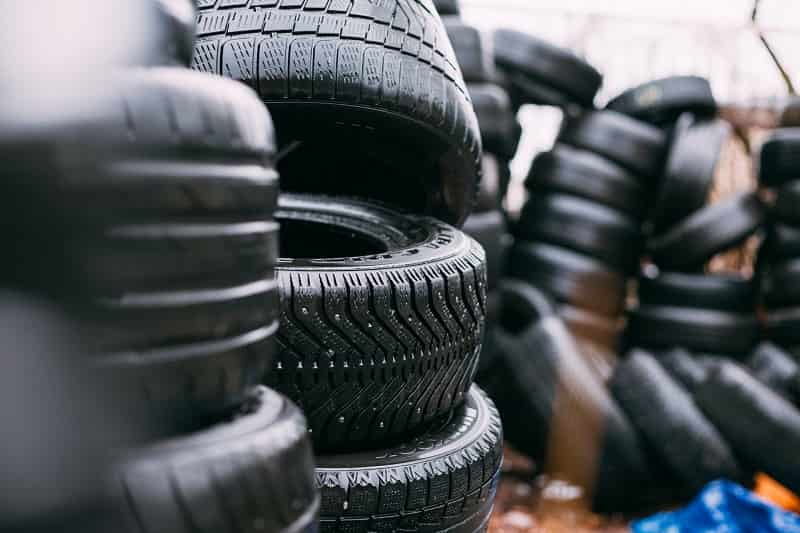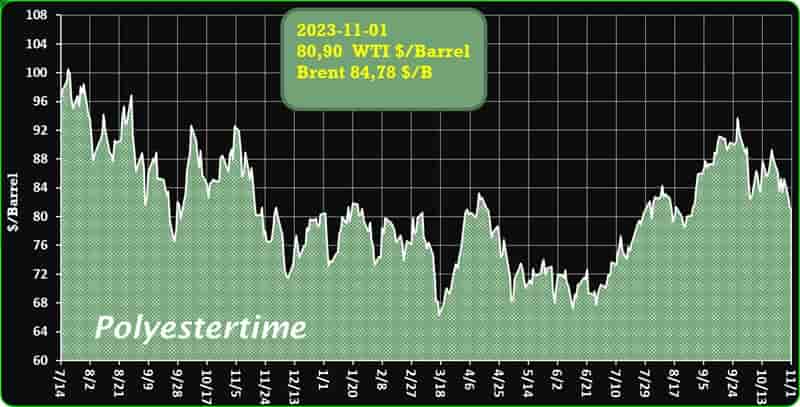European plastics manufacturers have agreed a “Plastics Transition” roadmap that aims to accelerate the transition to make plastics circular and net zero lifecycle emissions.
The “Plastics Transition” roadmap highlights what Plastics Europe calls the “urgent need” for a policy framework that stimulates circular markets and investments.
Plastics Europe says its vision is to create a sustainable plastics system that continues to meet consumer and societal demands while supporting the transitions of many downstream industries. Circular plastics
The roadmap establishes a pathway to reduce greenhouse gas emissions from the overall plastics system by 28% by 2030 and towards net zero by 2050. It also predicts that circular plastics could meet 25% of European demand in 2030 and 65% by 2050.
Cumulated additional investments and operational costs to reach these ambitions are projected to be €235 billion, Plastics Europe says.
The roadmap identifies several “key levers and enablers”, and details immediate, short, and medium-term milestones and actions for plastics manufacturers. It also says that circularity requires a whole value chain approach and includes recommended actions for policymakers and value chain stakeholders between now and 2030.
For the first time our industry is united around a hugely ambitious but realistic plan to redesign the European plastics system.
Virginia Janssens, Managing Director of Plastics Europe, commented: “For the first time our industry is united around a hugely ambitious but realistic plan to redesign the European plastics system – the ‘Plastics Transition’ roadmap. It will be our North Star for the years to come and reflects a profound cultural shift that has taken place in our industry.” Circular plastics
The roadmap also calls for a European waste management system fit for a net zero and circular economy, minimum circular plastic content targets for key plastics applications, and unlock industry investments in, for example, chemical recycling infrastructure.
Marco ten Bruggencate, President of Plastics Europe, and Dow EMEA Commercial Vice President Packaging and Specialty Plastics said: “We are excited about the opportunity the Green Deal provides to create a thriving and competitive European plastics industry that allows us to increase investment and innovation in circularity and decarbonisation.
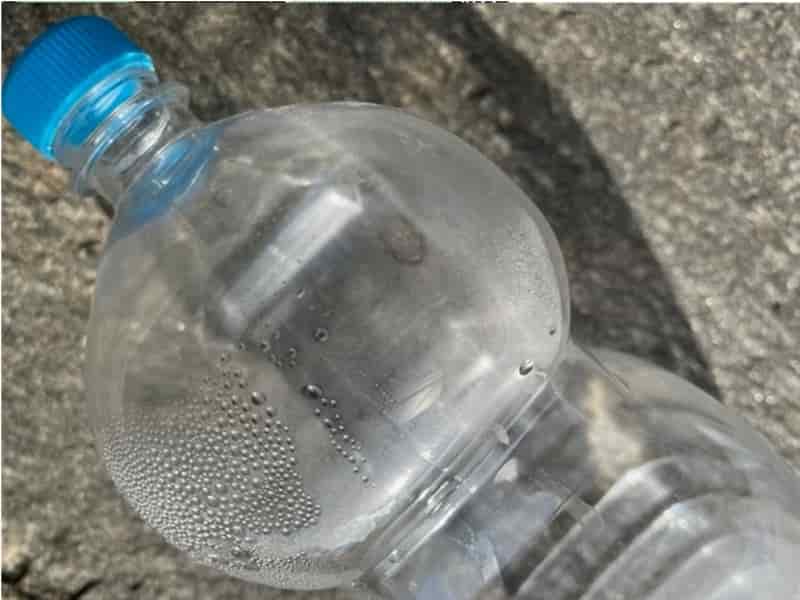
Amcor, SK Geo Centric partner for supply of recycled content
Amcor, a global leader in developing and producing responsible packaging solutions, announced today that it has signed a Memorandum of Understanding (MOU) with SK Geo Centric (SK), a leading petrochemical company based in South Korea, to source advanced recycled material primarily in the Asia Pacific region beginning in 2025.
The MOU with SK will enable Amcor to provide access to packaging solutions using recycled content for food and healthcare customers in key markets in Asia Pacific, as well as globally, building on Amcor’s existing global access to advanced recycled material through ExxonMobil, as well as its recent investment with Licella in Australia. Combined, these partnerships will help Amcor take another important step toward achieving its target of 30% recycled content across its portfolio by 2030. Circular plastics
“Our ability to deliver more sustainable packaging solutions containing recycled material is increasingly important to customers in all consumer categories,” said Mike Cash, president of Amcor Flexibles Asia Pacific. “These partnerships will help enable Amcor to unlock opportunities for food and healthcare customers to leverage recycled content in their packaging, and will also foster a circular economy by significantly reducing the need for virgin plastic.”
SK Geo Centric CEO Na Kyung-soo said, “We are committed to contributing to a circular economy by expanding the supply chain where pyrolysis oil, produced from end-of-life plastic, can provide recycled content in consumer packaging. Providing Amcor with access to that material is an important step forward.”
SK extracts pyrolysis oil from end-of-life plastic waste that would otherwise be sent to landfill. SK is using post-processing technology the company developed.
This can then replace crude oil as a feedstock for petrochemical processes and subsequently polyethylene to make new sustainable packaging materials for our customers. Circular plastics
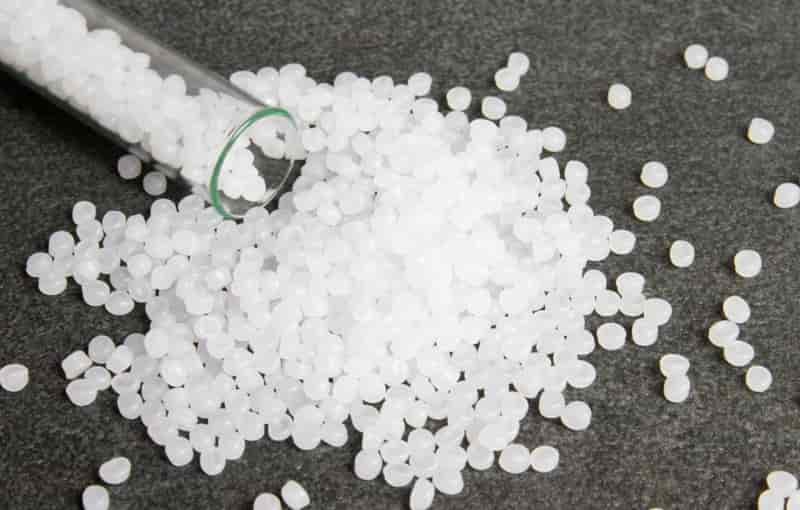
The Coca-Cola Company is transitioning all 500ml sparkling beverage bottles sold in Canada into 100% recycled plastic, excluding caps and labels, by early 2024 to save virgin plastic, reduce carbon emissions, and meet its sustainability targets.
The company claims to be the first to launch multiple sparkling beverages in 100% recycled plastic bottle bodies across Canada. Coke Canada Bottling will produce the bottles at its manufacturing facilities in Brampton, Ontario; Calgary, Alberta; Lachine, Quebec; and Richmond, British Columbia. Circular plastics
All bottles falling under this category will display ‘Recycle Me Again’ messaging to raise awareness and encourage consumers to continue recycling the packaging at end-of-life.
“This means that no virgin PET plastic will be used for our sparkling 500ml bottles under normal circumstances going forward in Canada,” said Kurt Ritter, vice president and general manager, Sustainability, Coca-Cola North America. “We hope that transitioning our 500ml sparkling portfolio to 100% recycled plastic will increase the amount of high-quality, food-grade, recycled plastic available in Canada and, ultimately, enable us to offer more of our brands in this sustainable format.” Circular plastics
The shift is predicted to save 7.6 million pounds of new plastic in 2024 and cut out almost 7,000 metric tons of CO2 every year, a reduction that The Coca-Cola Company compares to taking 1,500 cars off the road for one year. It also aligns with the company’s World Without Waste goals, in which it aspires to lower its consumption of virgin plastic and utilize at least 50% recycled content in its packaging by 2030.
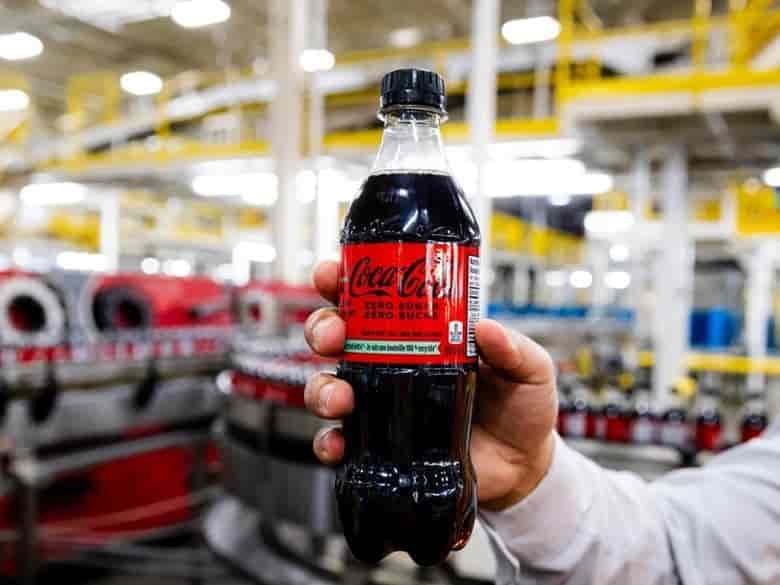
World Bank warns oil price could soar to record $150 a barrel
Escalation of Israel-Hamas war into Middle East-wide conflict would disrupt oil supplies and stoke food prices, says Bank
Oil prices could soar to a record high of more than $150 a barrel if the war between Israel and Hamas leads to a repeat of the full-scale conflict in the Middle East witnessed 50 years ago, the World Bank has warned.
In the first major assessment of the economic risks of an escalation of the war beyond Gaza’s borders, the World Bank said there was a risk of the cost of crude entering “uncharted waters”. Circular plastics
A “large disruption” scenario comparable with the Arab oil boycott of the west in 1973 would create supply shortages that would lead to the price of a barrel of oil increasing from about $90 to between $140 and 157. The previous record – unadjusted for inflation – was $147 a barrel in 2008.
“The latest conflict in the Middle East comes on the heels of the biggest shock to commodity markets since the 1970s – Russia’s war with Ukraine,” said Indermit Gill, the World Bank’s chief economist. “That had disruptive effects on the global economy that persist to this day.
“Policymakers will need to be vigilant. If the conflict were to escalate, the global economy would face a dual energy shock for the first time in decades – not just from the war in Ukraine but also from the Middle East.”
The Bank said in its latest commodity markets outlook that the shock to the global economy would not be confined to energy costs but would also result in hundreds of millions going hungry as a result of higher food prices.
In its assessment, the Bank said the Israel-Hamas war had had little impact on commodity prices so far. Oil prices had risen by about 6%, but agricultural commodities, industrial metals and other commodities had “barely budged”.
It added: “The outlook for commodity prices would darken quickly if the conflict were to escalate.” Circular plastics
Under the World Bank’s baseline forecast, oil prices will average $90 a barrel in the current quarter before declining to an average of $81 a barrel next year as global economic growth slows. But it also sketched out three alternative paths for oil prices:
- A “small disruption” scenario, in which the global oil supply would be reduced by 500,000 to 2m barrels a day -roughly equivalent to the reduction seen during the Libyan civil war in 2011. The oil price would rise to a range of $93 to $102 a barrel.
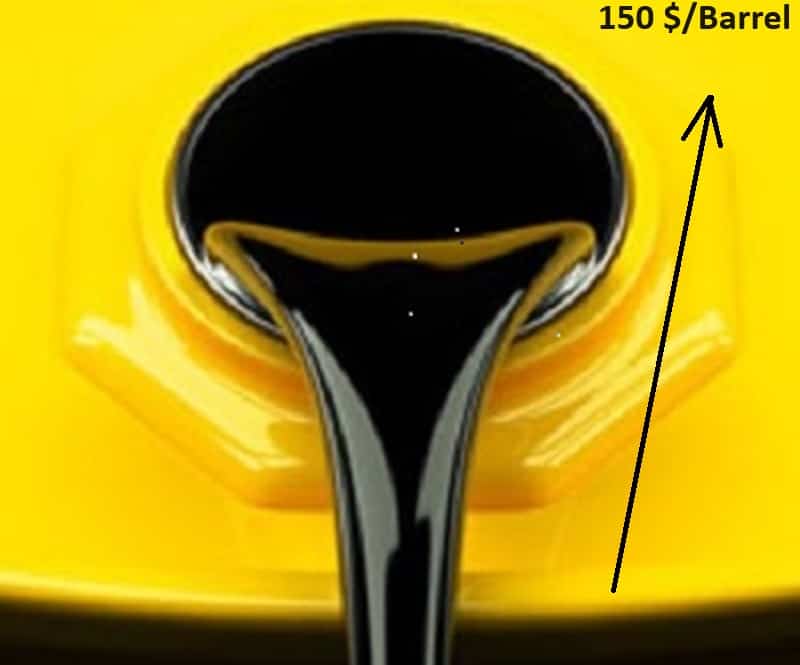
Closing the loop on bottle caps
Recycler, processor and manufacturer Greenpath Enterprises has partnered with TOMRA Recycling Sorting to install and optimize a plastic flake sorting line designed to identify and separate mixed polyolefin caps from beverage bottles.
“We are at the genesis of creating a sorting system for caps similar to what is more common today for the bottle,” said Eric Olsson, area segment manager, plastics for TOMRA Recycling. Circular plastics
Operating for more than 25 years, the vertically integrated Greenpath accepts a wide range of materials, and the inbound flow can be somewhat inconsistent. Greenpath creates value being a one-stop solution by accepting mixed trailer loads with variable supply streams and producing consistent, quality products.
“Developing a mechanical sorting process to close the loop for food-grade cap-to-cap recycling by consistently separating mixed polyolefins by polymer and colour with high purity is a game changer,” said Joe Castro, president of Colton, California-based Greenpath.
Considering only the post-consumer polyolefin materials – low-density polyethylene (LDPE), high-density polyethylene (HDPE) and polypropylene (PP) – Greenpath accepts film, rigid plastics and bottle caps. Polypropylene and polyethylene (PE) are together the most abundant plastic family on earth, but the market is limited for valuable applications for mixed polyolefins, according to Olsson.
PE and PP have very close density characteristics and are challenging to separate. So, mixed polyolefins are primarily downcycled into more forgiving applications that allow for more contamination. Circular plastics
The quest for cap to cap
A beverage container commonly consists of four parts: the bottle, cap or closure, ring and label. A more mature PET recycling infrastructure has led to brand owners incorporating up to 100% PCR material in their bottles.
As regulations increase the percentage of recycled content by weight, the next logical container component to address is the cap. “Following Greenpath’s approach, the industry can move toward a 100% PCR by weight package using only mechanical sortation,” says Olsson.
During the recycling process, bottles, labels, caps and rings are shredded, and a sink-float process is used to separate the PET bottles from the PE and PP caps.
The heavier PET sinks and the lighter polyolefins float and are skimmed off as a secondary byproduct. Circular plastics
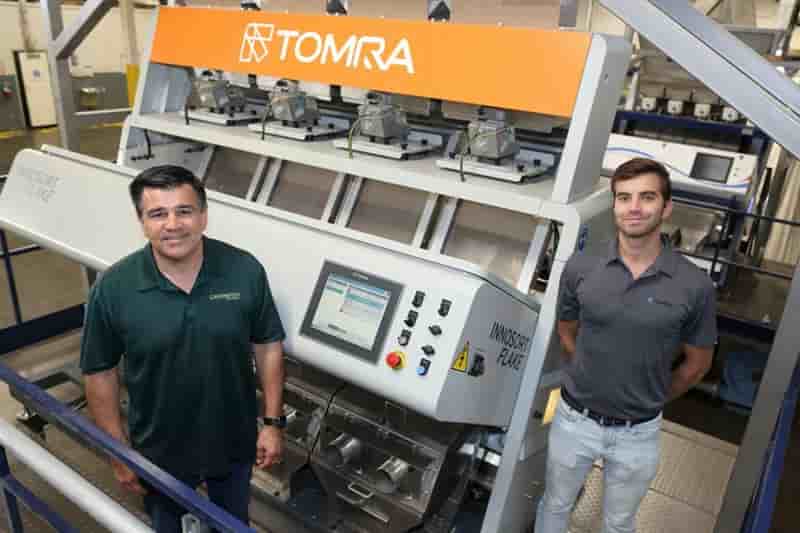
The Future of Cars: Exploring the Advancements in Polymer Automobile Technology
The automotive industry is experiencing a revolution, and at the heart of this transformation lies the remarkable advancements in polymer automobile technology. In recent years, there has been a paradigm shift towards the use of polymers, also known as plastics, in various automotive applications. These innovations are set to reshape the future of cars by enhancing performance, reducing environmental impact, and improving safety. This article delves into the exciting world of polymer automobile technology and how it is driving the automotive industry towards a sustainable and dynamic future.
Introduction
The Rise of Polymers in Automobiles
Lightweighting for Fuel Efficiency
One of the most significant trends in the automotive industry is the pursuit of fuel efficiency. As environmental concerns and stringent regulations regarding emissions continue to shape the industry’s landscape, automakers are turning to polymer materials for solutions.
Polymers offer a remarkable advantage in terms of weight reduction. By replacing traditional metal components with lightweight polymers, vehicles can achieve better fuel economy and reduced emissions. Circular plastics
In the quest for lightweighting, polymers like carbon fiber-reinforced composites are leading the way. These materials are not only lighter than steel but also possess impressive strength and durability. As a result, the use of polymers in structural components, such as body panels and chassis, is on the rise. This shift towards lightweight materials not only reduces fuel consumption but also enhances handling and overall driving experience.
Electrification and Battery Technology
The electric vehicle (EV) revolution is another driving force behind the adoption of polymer technology. In EVs, battery packs play a crucial role, and their weight directly impacts the vehicle’s range and performance. To optimize the efficiency of batteries, automakers are incorporating lightweight and thermally efficient polymers in battery components.

Zeppelin Systems and ReOil build tire recycling plant in Poland
One of the members of this technology alliance is the Polish company ReOil, which built Europe’s largest pyrolysis plant for the recycling of old tires in 2015. Since then, ReOil has recycled around 20,000 tons of old tires annually. Zeppelin Systems was awarded the engineering contract for the construction of a second ReOil pyrolysis plant. Construction is scheduled to start in February 2024.
After completion of the gigantic plant, around 60,000 tons of old tires are to be returned to the sustainable circular economy every year.
ReOil, Europe’s largest pyrolysis plant operator, works in the field of raw material recycling. The company uses continuous pyrolysis to break down rubber from old tires into substance such as gas, oil and recovered Carbon Black (rCB). The recycled materials obtained are reused, for example, in the manufacture of textiles, new tires, rubber components, plastics, steel, or aviation fuel. After commissioning in 2015 and initial test runs, ReOil recycled around 70,000 tons of old tires since 2020 to date. Since 2020, the plant has been operating in a process-stable and profitable manner.
With the construction of the new pyrolysis plant, the company has tripled its annual recycling capacity to around 60,000 tons per year. A first-class plant covering an area of around 27 acres, brought to life by technology and engineering solutions from Zeppelin Systems! Circular plastics
